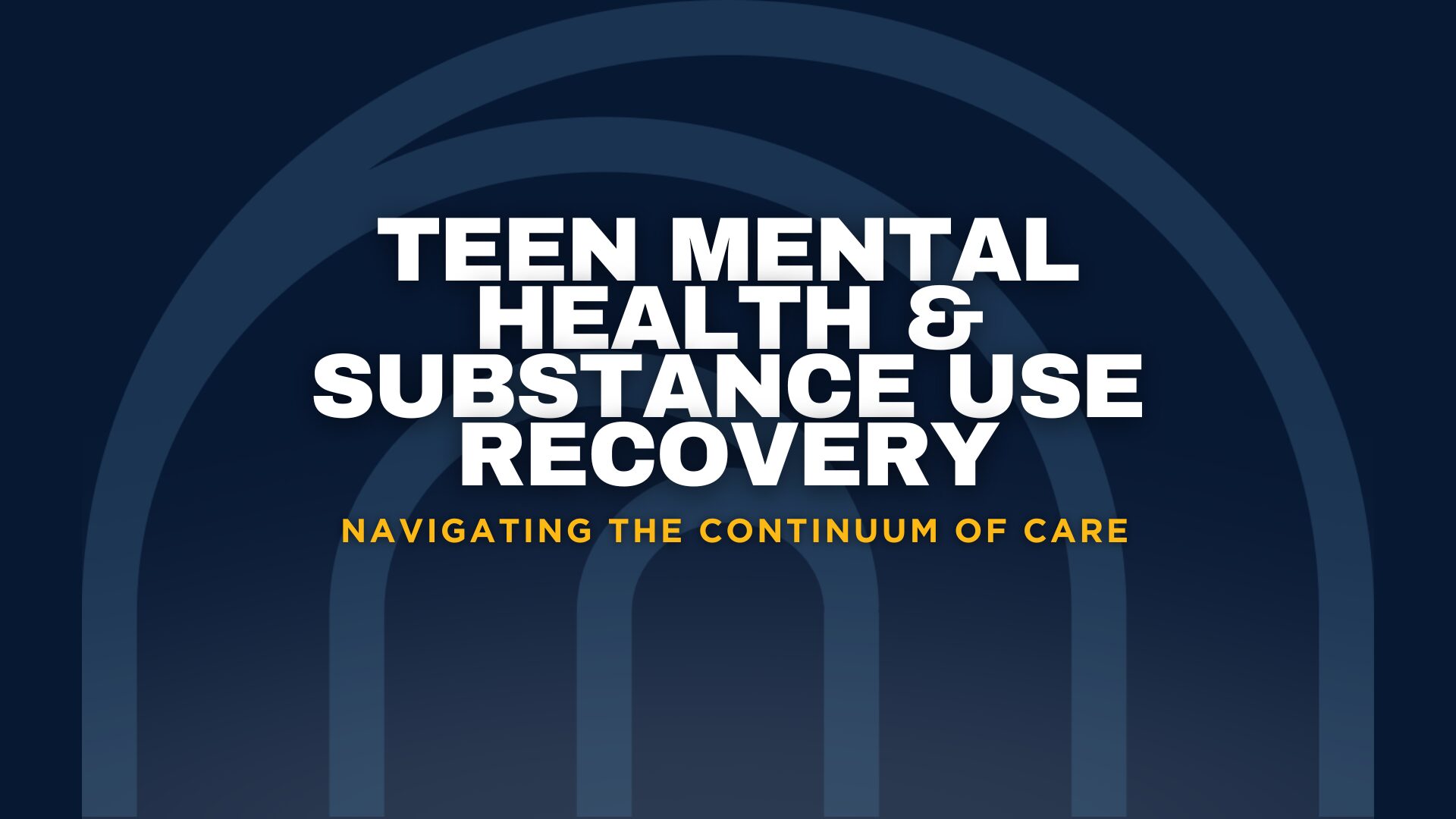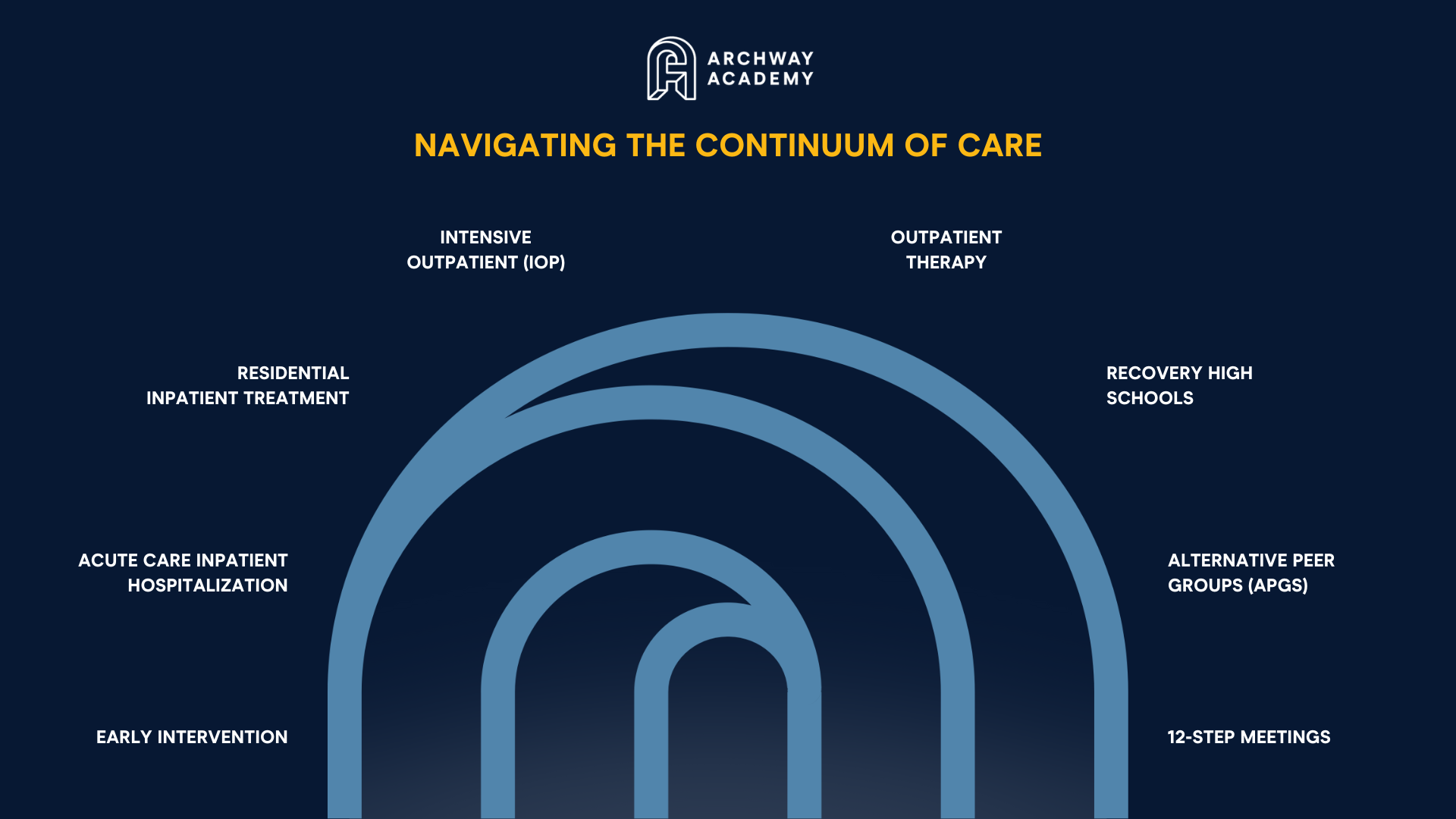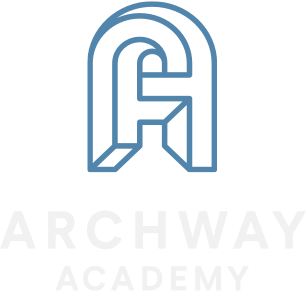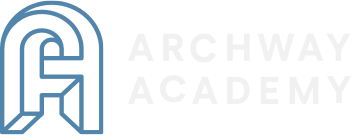Navigating the Continuum of Care for Adolescents: A Comprehensive Guide for Parents
Parenting a teen struggling with mental health or substance use disorders can be one of the most challenging experiences a family can face. With so many treatment options available, it’s easy to feel overwhelmed and unsure of where to start.
This comprehensive guide aims to demystify the continuum of care, helping parents understand the different levels of support available and when each is appropriate.
Whether your teen is just beginning their recovery journey or requires ongoing support, this guide will provide you with the knowledge to make informed decisions.
Understanding the Continuum of Care
The continuum of care refers to the range of services and supports available to adolescents with mental health or substance use disorders. These services vary in intensity and structure, ensuring that teens receive the appropriate level of care based on their specific needs. Below, we break down each level of care, explaining what it involves, when it’s needed, and where you can find these services.
Early Intervention: The First Line of Defense
Definition: Early intervention involves addressing mental health or substance use issues as soon as they are detected. This level of care includes counseling, education, and support aimed at preventing the problem from escalating.
When to Use: If your teen is showing early signs of mental health issues or substance use, early intervention can prevent the need for more intensive treatment. Common signs include changes in behavior, mood swings, declining academic performance, and social withdrawal.
Service Providers: School counselors, community mental health centers, outpatient therapists.
Acute Care Inpatient Hospitalization
Definition: This is the highest level of care, providing 24/7 medical and psychiatric support in a hospital setting. It is typically used during a crisis when a teen is a danger to themselves or others.
When to Use: Acute care is necessary during emergencies, such as severe depression, suicidal thoughts, or acute substance withdrawal requiring medical supervision.
Service Providers: Menninger Clinic, Houston Behavioral Healthcare Hospital, SUN Behavioral Health.
Residential Treatment for Mental Health and Substance Use Disorders
Definition: Residential treatment involves the teen living at a specialized facility where they receive comprehensive, long-term care. This includes therapy, education, and medical management to address both mental health and substance use issues.
When to Use: This level of care is ideal for teens who need to be removed from their current environment to focus on recovery, particularly when outpatient services are not sufficient.
Service Providers: The PaRC (Prevention and Recovery Center), The Center for Success and Independence (TCSI), Clearfork Academy, Meridell Achievement Center, Shoreline Recovery Center.
Intensive Outpatient Programs (IOP)
Definition: IOPs offer structured treatment while allowing teens to live at home. These programs involve several hours of therapy and support each week, focusing on both mental health and substance use.
When to Use: IOPs are suitable for teens who need more support than standard outpatient therapy but do not require the full-time care provided by residential treatment. It’s often used as a step-down from residential care or as an initial treatment for less severe issues.
Service Providers: Luna Recovery Services, Ethos Behavioral Health Group, The Center for Success and Independence (TCSI).
Outpatient Therapy
Definition: Outpatient therapy involves regular sessions with a mental health professional. This is the least intensive level of care and can address a wide range of issues from anxiety and depression to substance use.
When to Use: Outpatient therapy is appropriate for teens with stable home environments who do not need intensive supervision. It’s often part of a long-term recovery plan or used after more intensive treatment.
Service Providers: Private therapists, community mental health centers, school-based counselors.
Recovery High Schools
Definition: Recovery high schools are specialized educational institutions that provide a sober learning environment for students recovering from substance use disorders. These schools integrate academics with recovery support, including counseling and peer groups.
When to Use: Recovery high schools, like Archway Academy in Houston, are ideal for teens committed to maintaining sobriety while continuing their education in a supportive environment.
Service Providers: Archway Academy.
Alternative Peer Groups (APGs)
Definition: APGs offer a community-based network of peer support for teens in recovery. These groups provide counseling, social activities, and a sober environment, playing a critical role in maintaining long-term sobriety. Archway Academy partners closely with APGs to provide students with vital peer support and community connections for sustained sobriety. We believe APGs are essential and critical components for achieving long-term sobriety.
When to Use: APGs are beneficial during and after formal treatment, offering ongoing support and helping teens build a sober lifestyle through peer connections.
Service Providers: Palmer Drug Abuse Program (PDAP), Teen and Family Services (TAFS), Adventure Learning Program (ALP).
12-Step Meetings
Definition: 12-Step meetings, such as Alcoholics Anonymous (AA) or Narcotics Anonymous (NA), are peer-led groups that follow a structured program for recovery. These meetings provide community, accountability, and ongoing support through a step-by-step recovery process.
When to Use: 12-Step meetings can be used at any stage of recovery and are often recommended as a lifelong component of a teen’s recovery plan.
Service Providers: Local AA and NA chapters, community centers, and online groups.
Collegiate Recovery Programs (CRPs)
Definition: Collegiate Recovery Programs (CRPs) are supportive environments within college campuses designed to help students in recovery from substance use disorders maintain their sobriety while pursuing their academic goals. These programs typically offer a range of services, including recovery coaching, support groups, sober housing, and academic support tailored to the needs of students in recovery.
When to Use: CRPs are ideal for students transitioning from high school recovery programs, such as those provided by Archway Academy, into higher education. These programs help ensure that students continue to receive the support they need to thrive both academically and in their recovery during college.
Service Providers: Many universities across the country offer CRPs, including the University of Houston, Texas Tech University, and Texas A&M. These programs are becoming increasingly available as colleges recognize the importance of supporting students in recovery.
Conclusion
Navigating the continuum of care for adolescents struggling with mental health and substance use disorders can be complex, but understanding the available options can make this journey more manageable. From early intervention to ongoing support through recovery high schools and 12-step meetings, each level of care plays a vital role in your teen’s recovery journey.
At Archway Academy, we’re here to help you and your teen every step of the way. Our unique blend of education and recovery support ensures that students not only maintain sobriety but also succeed academically. If you need guidance or have questions about the best path for your teen, please reach out to us. We are committed to supporting your family through this challenging time, ensuring your teen receives the right care at the right time.
This comprehensive guide combines insights from respected resources like NACoA and the Child Mind Institute, as well as practical information about the continuum of care, to offer a detailed and resourceful tool for parents. By integrating these elements, this blog post aims to provide families with the knowledge and confidence to navigate their teen’s recovery journey successfully.




